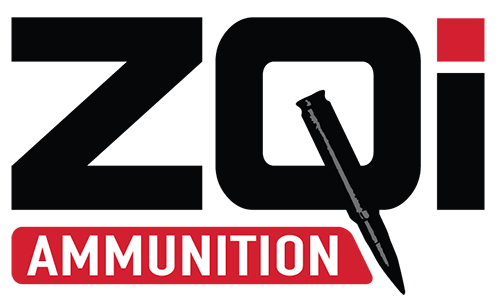No products in the cart.
Recommendations for Ammunition Safety
ZQI Ammunition
These recommendations have been prepared by ZQI Ammunition, based upon currently available information. They are provided to you as a courtesy and in the interest of furthering safety. These recommendations are not comprehensive, nor do they modify or replace recommendations, standards, or regulations made by legal authorities or manufacturers. ZQI AMMUNITION EXPRESSLY DISCLAIMS ANY LIABILITY, OBLIGATION, OR WARRANTY RELATED TO THE INFORMATION SET FORTH IN THESE RECOMMENDATIONS.
SAFE AND PROPER HANDLING AND STORAGE OF AMMUNITION
- Explosive Volatility: Ammunition contains explosive ingredients, including a percussion-sensitive primer mixture and a smokeless propellant. Because of this, you should always treat ammunition with care and respect in handling, transport, and storage.
- Store in Manufacturer Packaging: You should always store ammunition in the manufacturer’s packaging. That packaging contains labeling and identification that helps ensure that the ammunition will be used in the firearm(s) for which it is manufactured.
- Avoid High Temperatures: Do not store ammunition where it will be exposed to extreme high temperatures (over 150 degree Fahrenheit). Because trunks and passenger compartments in cars can develop extreme high temperatures, you should not store ammunition in either.
- Avoid Exposure to Water and Other Potentially Invasive Substances: Certain substances can penetrate and deteriorate ammunition, causing misfires or squib shots. A squib shot may cause a projectile to lodge in a firearm barrel, possibly causing serious damage or injury when another round is fired. Do not expose ammunition to water, solvents, paint thinner, petroleum-based products, ammonia, etc. If you store ammunition in a basement or warehouse, keep it elevated on plats or shelving, to prevent exposure to moisture.
- Keep Children Safe: When storing ammunition in a home, you should store it in a locked cabinet, closet, or safe, out of the reach of children and other unintended users. You should always store firearms and ammunition out of the sight and reach of children and anyone else who is not physically or mentally capable of handling and using them properly and safely.
- Dispose of Unserviceable Ammunition: You should dispose of any ammunition that has been exposed to fire or water, as it may be dangerous when fired. When disposing of ammunition, do not bury it or dump it in water. Most of the time, you can return unserviceable ammunition directly to the manufacturer.
- Always Use Correct Ammunition: Never use improper or incorrect ammunition. Only use ammunition recommended by the firearm manufacturer that is for the caliber of your firearm. Most firearms have the caliber engraved or stamped on the barrel. Your ammunition should have the exact same caliber. If you use the incorrect ammunition, it can destroy a firearm and cause serious injury.
- Unload Firearms When Not Using: Firearms should be loaded only when in use and ready to shoot.
- Handle Misfires With Care: If ammunition does not fire when you pull the trigger, handle as follows: (1) point the muzzle in a safe direction, (1) keep your face away from the breech, (3) carefully open the action, (4) unload the firearm, and (5) dispose of the ammunition safely.
- Use Eye and Ear Protection: Always wear safety glasses when shooting firearms. They prevent injuries from twigs, falling shot, clay chips, and the unlikely ruptured case or firearm malfunction. Always wear sound buffering ear protection, as the loud noise from shooting can cause hearing loss.

